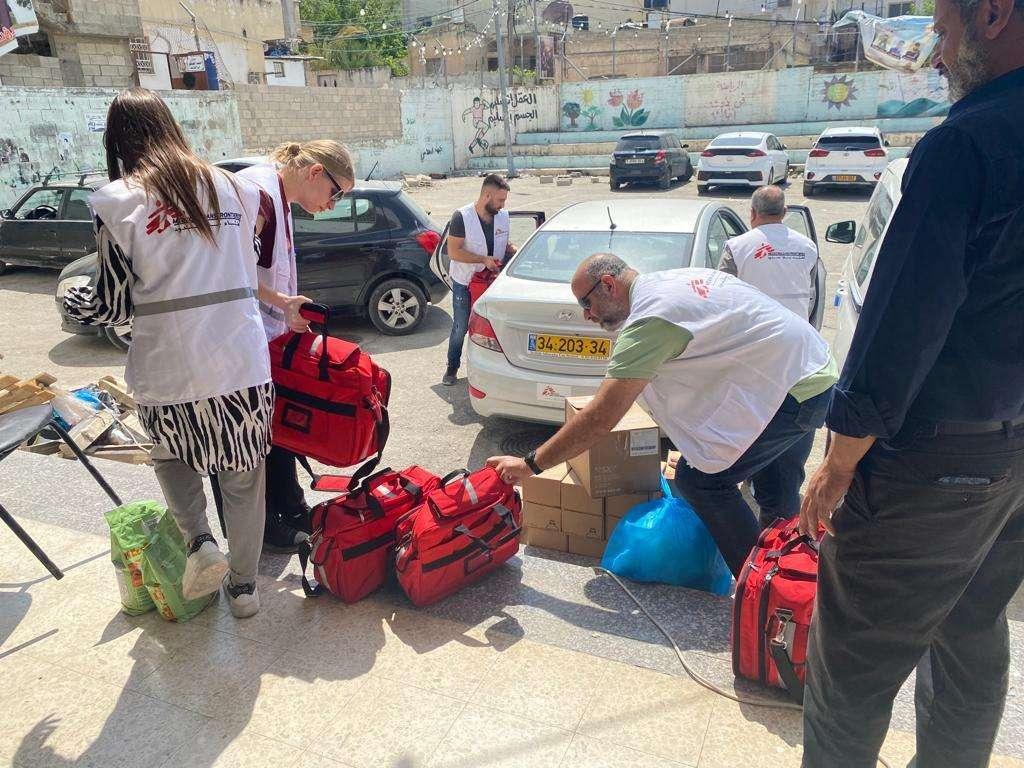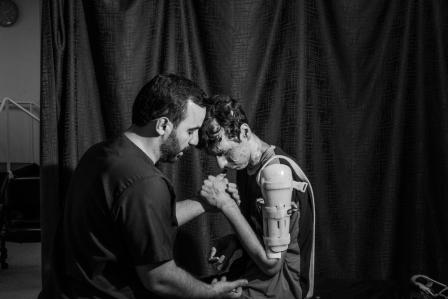Palestine: Doctors Without Borders condemns denial of medical access during the largest military raid in Jenin

Palestinian Territories, 2023 © MSF
Doctors Without Borders / Médecins Sans Frontières (MSF) staff are currently providing emergency healthcare in the northern West Bank city of Jenin, following a large-scale raid by Israeli forces in the city’s refugee camp, the largest in the West Bank since 2002. At least 8 people were reported killed, and 91 others have been injured in a ground and air attack that left many with gunshot and shrapnel wounds.
Beyond killing and injuring people, the raid also affected health structures, and obstructed medical response to the emergency. Several gas canisters landed in the courtyard of the Khalil Suleiman hospital, where Doctors Without Borders staff had been treating patients suffering from gunshot wounds since 2 am.
"The raids in Jenin are becoming more and more frequent, and their intensity seems to reach new heights. We have seen several patients with gunshot wounds to the head and we have received 55 wounded patients," said Jovana Arsenijevic, Doctors Without Borders Operations Coordinator in Jenin.
Military bulldozers destroyed multiple roads leading to the Jenin refugee camp, stripping them of pavement and making it nearly impossible for ambulances to reach patients; during the raid, Palestinian paramedics have been forced to proceed on foot, in an area with active gunfire and drone strikes. All roads leading to the camp have been blocked for the duration of the military operation despite the presence of patients in need of care inside the refugee camp.
“We've been working for 15 hours and patients keep coming in. This is an unprecedentedly long military operation, and yet there are still victims that cannot be reached. Health care staff must be allowed to access patients unhindered,” Arsenijevic said.
The July 3 raid brought the number of deaths during Israeli forces operations in Jenin to 48 this year. With raids increasing in frequency, obstructions to medical care provision are on the rise too.
Raids by Israeli forces in Jenin are increasingly resorting to air support, a worrying development in the use of violence. Today, at least 10 air attacks were reported in Jenin.
Raids on Jenin camp have started to follow a familiar pattern – ambulances have been rammed by armoured cars and patients and health care staff have routinely been denied entry and egress to the camp. However, the use of attack helicopters and drone strikes in such a densely populated area represents a marked increase in intensity and is nothing short of outrageous.Jovana Arsenijevic, Ops. Coordinator
“What we see is that the hospital where we are treating patients was struck by tear gas canisters. Medical structures, ambulances and patients must be respected.”
Doctors Without Borders has been in the Occupied Palestinian Territories since 1989 and currently has medical humanitarian operations in Jenin, Nablus, Hebron, and Gaza.







